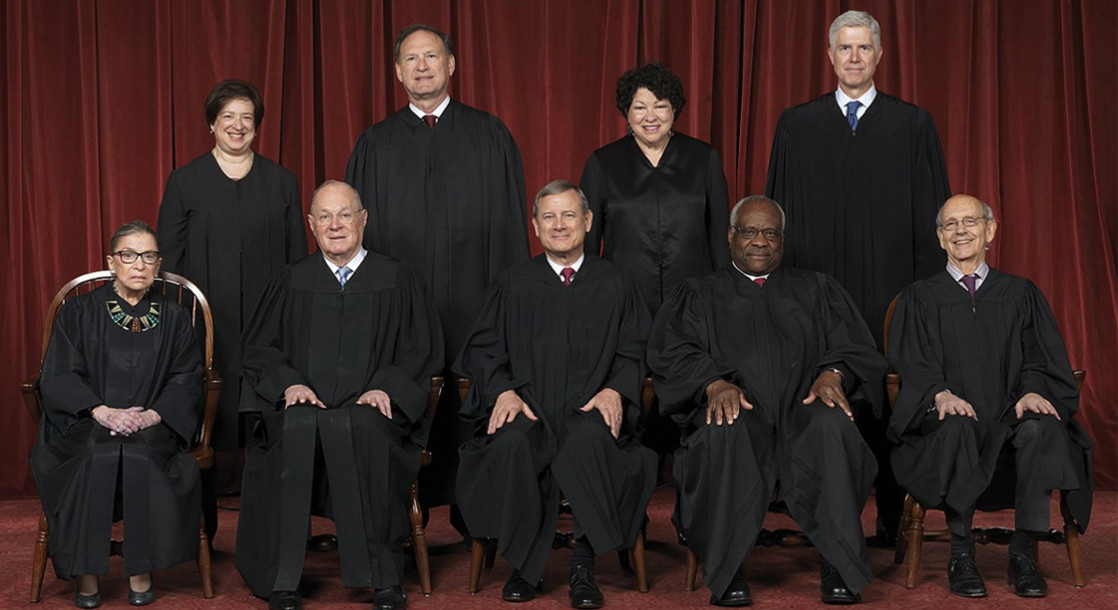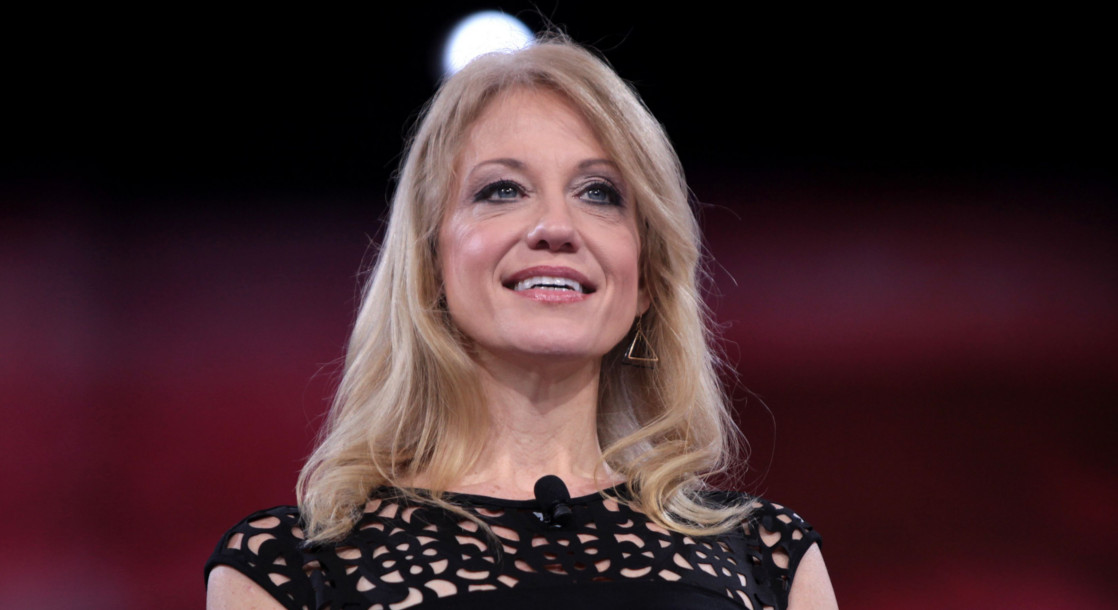Photo via Franz Jantzen/ U.S. Supreme Court
The Supreme Court voted in a 5-4 decision on Tuesday to uphold Donald Trump’s travel ban, restricting persons from six majority-Muslim countries from entering the United States. According to the Washington Post, the high court split along partisan lines, with Trump appointee Neil Gorsuch representing the deciding vote.
Trump first signed an executive order banning foreign nationals from eight countries from coming to America in January 2017, but had that bill shot down by district courts on three separate occasions.
In yesterday’s decision on the administration's appeal, Chief Justice John Roberts wrote that the so-called “extreme vetting” proclamation banning visitors and immigrants from Syria, Libya, Iran, Yemen, Chad and Somalia was “squarely within the scope of Presidential authority.” Detractors, including Justice Sonia Sotomayor, argued that the travel ban was both racially and religiously prejudiced, with citizens of the chosen countries posing no credible threat to the United States.
“Our Constitution demands, and our country deserves, a Judiciary willing to hold the coordinate branches to account when they defy our most sacred legal commitments,” Sotomayor wrote on Tuesday. “Because the Court’s decision today has failed in that respect, with profound regret, I dissent.”
As the global community continues to seek answers about the humanitarian crisis at the U.S.-Mexico border, the Supreme Court decision further complicates America’s immigration debate, with some experts worrying that Tuesday’s ruling could empower the president’s racially-charged nationalist agenda even more.
“If you can issue an outright ban, there’s no end to what you can accomplish,” said Leon Fresco, an immigration attorney who served as an aide to Senate Minority Leader Charles E. Schumer (D-N.Y.), to the Post. “You can turn it on any country at any time for any reason.”
Outside of the travel ban itself, Tuesday’s ruling brought on a renewed focus on the makeup of the Supreme Court, and the blockade enacted by Republican Senators in 2016 to restrict President Obama’s ability to replace deceased judge Antonin Scalia. Lead by Majority Leader Mitch McConnell, GOP legislators successfully blocked Obama appointee Merrick Garland, setting the stage for Trump to appoint conservative Justice Neil Gorsuch in 2017.
Since Gorsuch took Scalia’s seat, the high court has sided with conservative leaders on labor unions, abortion rights and immigration.
On Wednesday, the court made yet another right-of-center ruling, implementing “opt-in” dues structures to public-service labor unions in their decision on Janus v. AFSCME. Unions have been leading donors to Democratic political campaigns for decades.
“Elections have consequences, and those consequences have been severe on the future of our judicial system under President Trump, who is remaking the federal bench to be more hostile towards workers’ rights and civil rights for generations to come,” New York Senator Kirsten Gillibrand told The Nation after Wednesday’s decision.
After Tuesday’s travel ban ruling, lawyers squaring off against the federal government expressed disappointment in the court, and called on Congress to intervene on behalf of America’s founding principles.
“We continue to believe, as do four dissenting justices, that the travel ban is unconstitutional, unprecedented, unnecessary and un-American,” attorney Neal Katyal said in a statement. “. . . The travel ban is atrocious policy, and makes us less safe and undermines our American ideals. Now that the Court has upheld it, it is up to Congress to do its job and reverse President Trump’s unilateral and unwise travel ban.”











